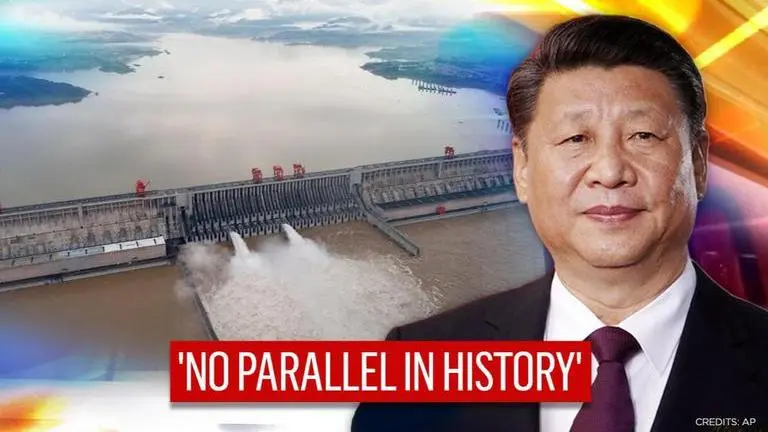Updated 30 November 2020 at 11:43 IST
China reveals plan to build the world's largest hydropower project on Brahmaputra river
China will build a major hydropower project on Brahmaputra river in Tibet and a proposal for this has been clearly put forward in the 14th Five-Year Plan.
- World News
- 3 min read

China plans to build a major hydropower project on Brahmaputra river in Tibet and a proposal for this has been clearly put forward in the 14th Five-Year Plan to be implemented from next year, an official mouthpiece on Sunday quoted the head of the Chinese company tasked to build the dam as saying.
Yan Zhiyong, chairman of the Power Construction Corp of China or POWERCHINA, said China will "implement hydropower exploitation in the downstream of the Yarlung Zangbo River (the Tibetan name for the Brahmaputra) and the project could serve to maintain water resources and domestic security," the Global Times reported.
'Historic opportunity for Chinese hydropower industry'
Speaking at a conference on Thursday, Yan said the project was clearly put forward in the proposals for formulating the country's 14th Five-Year Plan (2021-25) and its long-term goals through 2035 made by the Central Committee of the ruling Communist Party of China (CPC), the report quoted an article on the WeChat account of the Central Committee of the Communist Youth League of China on Sunday.
"There is no parallel in history... it will be a historic opportunity for the Chinese hydropower industry," Yan told the conference organised to celebrate the 40th anniversary of the founding of the China Society for Hydropower Engineering. The 14th Five-Year Plan (2021-2025) and National Economic and Social Development and the Long-Range Objectives Through the Year 2035 were adopted by Plenum - a key policy body of the CPC - last month. Details of the plan were expected to be released after the formal ratification by National People's Congress (NPC) early next year.
Advertisement
The Indian government has consistently conveyed its views and concerns to the Chinese authorities and has urged them to ensure that the interests of downstream states are not harmed by any activities in upstream areas. China has already operationalised the USD 1.5 billion Zam Hydropower Station, the largest in Tibet, in 2015.
'It's a project for national security'
About the new dam, the Global Times report said that speculation about China planning to build a "super hydropower station" in Medog county, where the Yarlung Zangbo Grand Canyon is located, have circulated for years. Medog is the last county in Tibet which borders Arunachal Pradesh.
Advertisement
In his address, Yan said that the hydropower exploitation of the Yarlung Zangbo River downstream is more than a hydropower project. It is also meaningful for the environment, national security, living standards, energy and international cooperation.
According to the report, the mainstream of the Yarlung Zangbo River has the richest water resources in Tibet Autonomous Region, about 80 million kilowatt-hours (kWh), while the 50-kilometre section of the Yarlung Zangbo Grand Canyon has 70 million kWh that could be developed with a 2,000-meter drop, which equals more than three Three Gorges power stations in Hubei province - the world's largest hydropower project by far.
Tibet has about 200 million kWh of water resources, accounting for 30% of the total in China. "The 60 million kWh hydropower exploitation at the downstream of the Yarlung Zangbo River could provide 300 billion kWh of clean, renewable and zero-carbon electricity annually. The project will play a significant role in realising China's goal of reaching a carbon emissions peak before 2030 and carbon neutrality in 2060," he said.
"It is a project for national security, including water resources and domestic security," he said, noting that the project will also smooth cooperation with South Asia. The hydropower station could generate income of 20 billion yuan (USD three billion) annually for the Tibet Autonomous Region, he said.
(With PTI inputs)
Published By : Jay Pandya
Published On: 30 November 2020 at 11:43 IST
